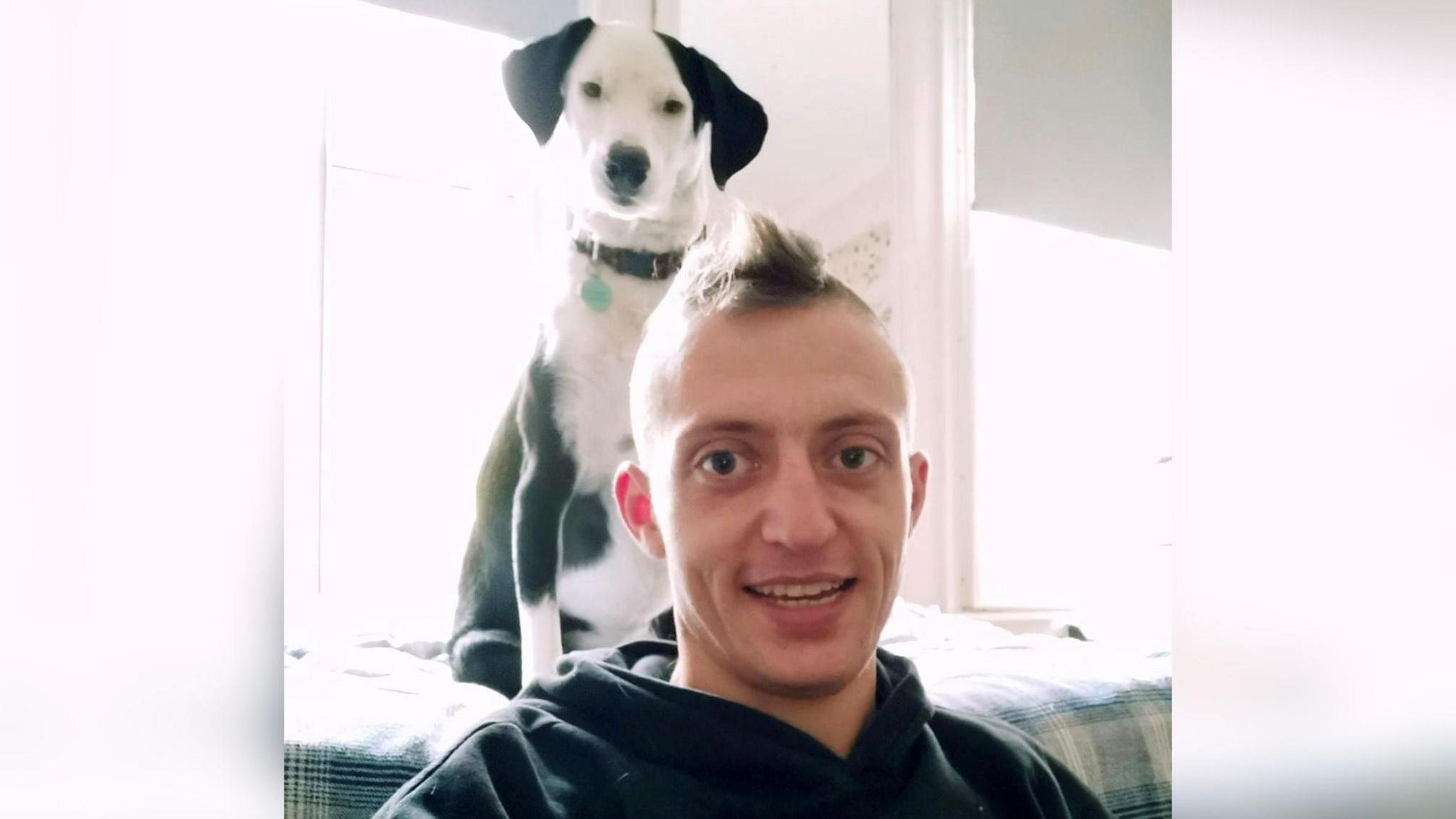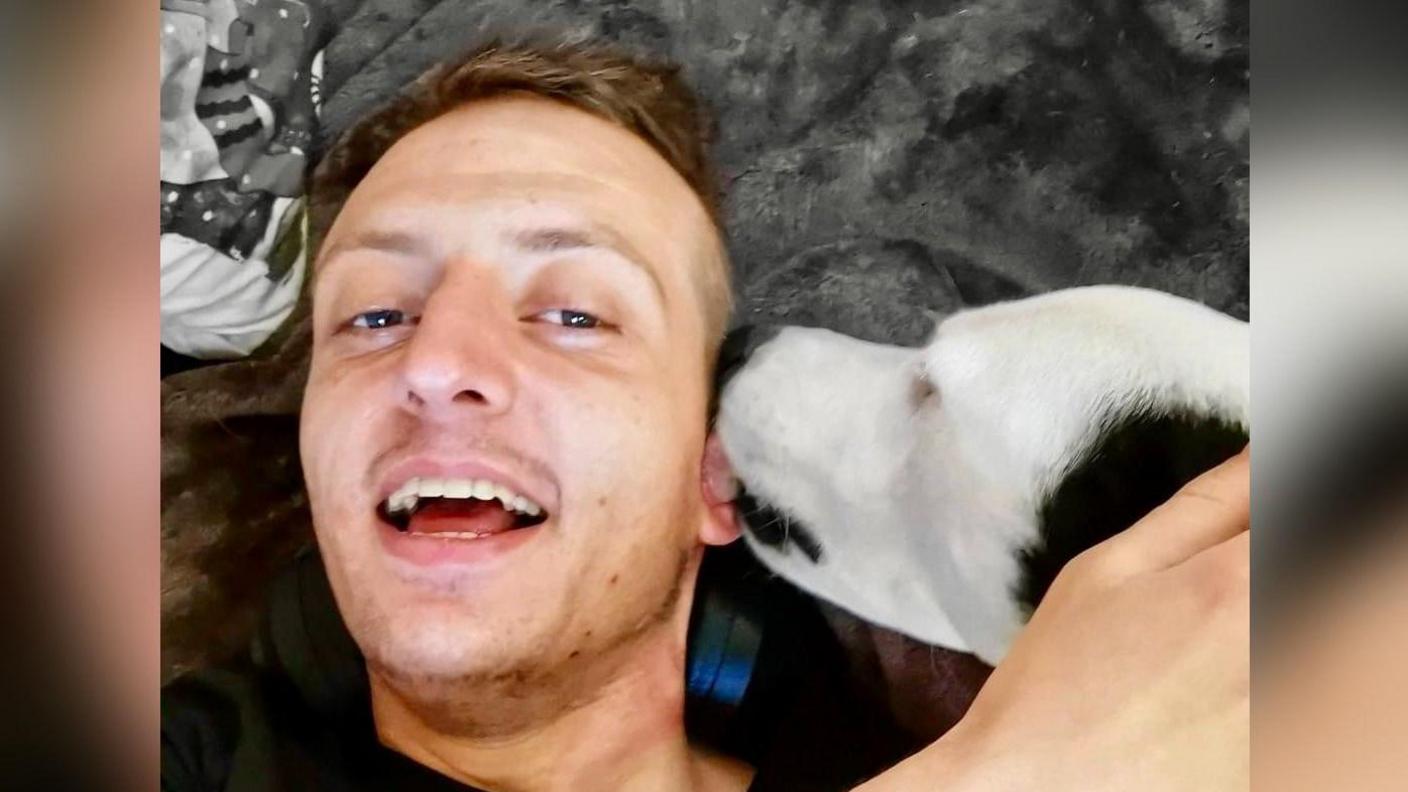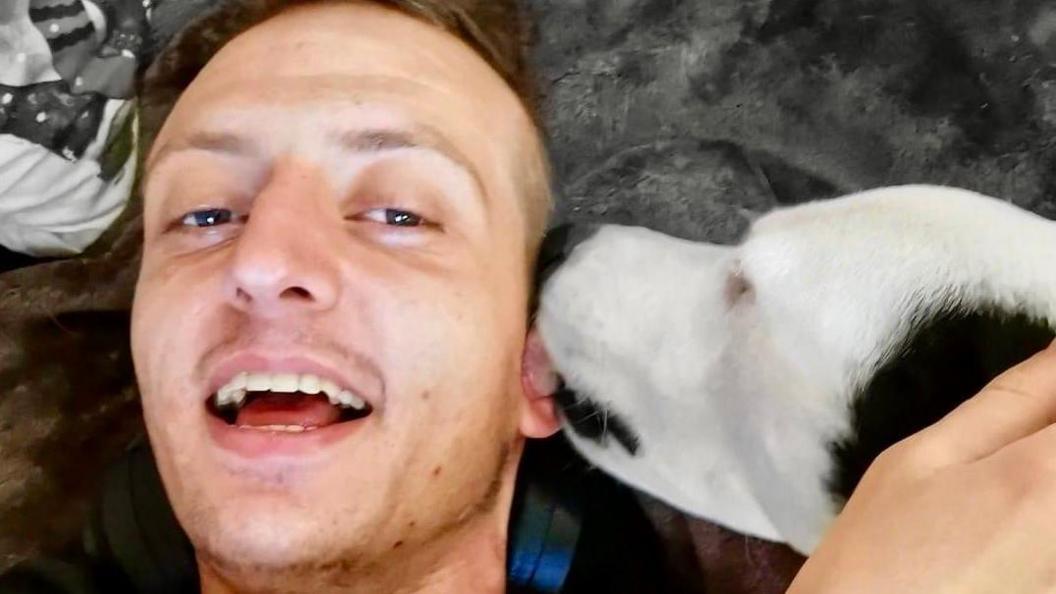Lengthy stay in A&E contributed to death - coroner

Matty Sheldrick moved to Hove with rescue dog Lola, hoping for a happy life, the inquest previously heard
- Published
A lack of psychiatric beds and a 26-day stay in an accident and emergency department were among issues which contributed to the death of a 29-year-old patient who took their own life, a coroner said.
Matty Sheldrick took their life in the grounds of Brighton's Royal Sussex County Hospital in November 2022.
Horsham's senior coroner, Penelope Schofield, found eight issues which contributed to their death at the inquest conclusion on Friday.
James Ramsay, NHS Sussex's chief medical officer, said trusts in the region had been working together to improve the support and environment in which people were cared for when they were in crisis.
BBC Action Line: If you have been affected by issues in this story, find out what support is available here.
Ms Schofield said private housing was not suitable for Matty's ongoing sensory issues and that an A&E department was "not a suitable environment for a neurodivergent individual".
She said that Matty, a trans person, had been unable to access specialist advice and resources from the Transforming Care in Austism Team.
Along with those issues, the coroner also said confusion when Matty decided to leave the hospital due to a lack of discharge care planning contributed to their death.
The inquest previously heard Matty took their life after reaching out for "help that did not appear to exist".
Matty's mother, Shelagh Sheldrick, previously said her child, who was autistic and had attention deficit hyperactivity disorder (ADHD), felt "dismissed, ignored and lied to" by mental health workers.

The inquest previously heard Matty took their life after reaching out for "help that did not appear to exist"
Following the inquest, she said she was "very angry" and thought her child's death was avoidable.
Ms Sheldrick explained that since Matty's death she had connected with other families that had similar experiences.
"Hopefully, as a collective, we can make a difference in the future if we keep having our voices heard," she said.
Ms Sheldrick said Matty, originally from Redhill in Surrey, moved to Hove in November 2021 with rescue dog Lola, hoping for a happy and productive life, with the right support.
'Most appropriate place'
Dr Ramsay said: "We would like to extend our sincerest condolences to Matty's family and friends, and say how sorry we are that Matty did not get the support they needed, despite the best efforts of staff, over the weeks leading up to this terrible tragedy."
He said trusts in the region had been working together to increase specialist mental health bed capacity, improve care for neurodivergent people and add more services in the community for transgender, non-binary, and intersex people.
"We will take action to respond to the areas raised by the coroner to make sure people can access care in the most appropriate place for them," Dr Ramsay said.
Follow BBC Sussex on Facebook, external, on X, external, and on Instagram, external. Send your story ideas to southeasttoday@bbc.co.uk, external or WhatsApp us on 08081 002250.
- Published2 July 2024
